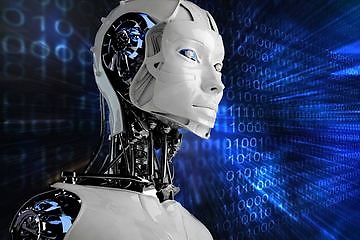Robert Lawrence in his article: ‘The Singularity, Virtual Immorality and the Trouble with Consciousness (Op-Ed)’ discusses the essence and exponential development of technology in general and artificial intelligence(AI). He performs a technology assessment (TA) by evaluating the implementation of this new technology and comparing the various views on the topic. By comparing two types of revolutions, singularity and virtual immortality, he discusses the option of complete digital replication of human brains. Through this process Lawrence touches upon an interesting discussion concerning the pros and cons of AI, by understanding and identifying the possible risks and benefits of this evolutionary technology. The question that comes to mind is whether consciousness is truly measurable, and if so, to what extent do we want to measure it?
The two revolutions that Lawrence discusses are proposed as two possible effects of AI that could radically transform humanity. Singularity is the ability of AI to redesign itself progressively to such extent that it will outgrow human intelligence. The other revolution is virtual immortality, in which we can upload our mental selves to non-biological media allowing it to live on beyond our physical bodies. Using a TA allows us to reflect on the struggle between supporting intelligence and innovation, and the fact that we lack a sufficient amount of knowledge to foresee all the possible outcomes. The ethical implications and embedded moral values that AI brings to the table, are reasons to act carefully with these new possibilities and technology that are entering society.
Constructive TA outlines the act of involving stakeholders when developing new technologies. IA, amongst many other new technologies, has developed with significant conflicting interests concerning the use of the technology. These conflicting perceptions mainly concern one confronting notion; consciousness. Michael Graziano, a neuroscientist at Princeton University, asks whether we can really assess consciousness. He states that ‘an assumption of consciousness is an attribution, a social attribution. And when a robot acts like it's conscious and can talk about its own awareness, and when we interact with it, we will inevitably have that social perception, that gut feeling, that the robot is conscious… All we do is compute a construct of awareness." Graziano identifies the reason why we should take the risks seriously, which is the fact that at one point humans will not be able to distinguish human consciousness versus that of AI. This builds upon the ideas of singularity and virtual immortality, where AI reaches a point at which it can outsmart the human mind and convince it of its awareness.
The risks of innovations are never to be taken lightly, and the assessment of which should be considered a vital element of its process for potential application. The development of AI technology can offer us solutions and new ways of revolutionizing the current technological order. In order for these revolutions to remain as a benefit to society, we should keep control of the possible outcomes that it offers and expand our knowledge on the topic before giving it the power to overrule its own inventor.

